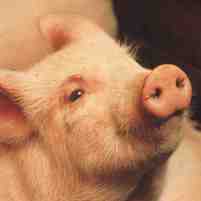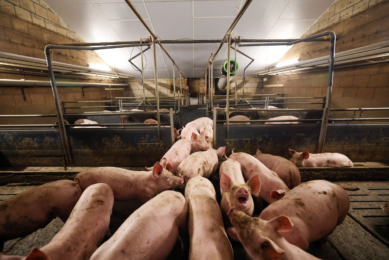Australian research: feed fish food to pigs

Australian scientists have found a way to reduce the amount of fat in pork by feeding fish meal to pigs.
This, they claim, will lead to produced pork which is rich in omega-3 fatty
acids, which should prevent the prevalence of heart diseases.
These acids are
known to break down triglycerides and reduce fat levels in the
blood.
Benefit
University of South Australia
researcher Alison Coates said people could now benefit from eating enriched pork
instead.
The study was set up with Bartlett Grain and Australian
Pork.
Study participants were fed five 200 g serves of the omega-3-rich pork
each week for a couple of weeks, with the results showing a decrease in
triglyceride, or DHA fats. “There was an increase in the incorporation of good
fats into cell membranes, and what that did was reduce the bad fats in
circulation, which reduces the risk of heart disease,” Dr Coates
said.
Fish smells
Dr Coates said concerns that the
pork or other omega-3-enriched foods would smell like fish were unfounded. “We
did multiple evaluations of this and there was no different in the sensory
perceptions,” she said. Several piggeries across Australia are beginning to use
the odour-free feed and it has also been made available to poultry farms.
However, it appears unlikely the process can be replicated in cows or sheep,
because ruminants have different digestive systems.
Related
links:
University
if South Australia
Australian Pork











